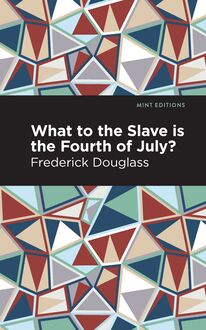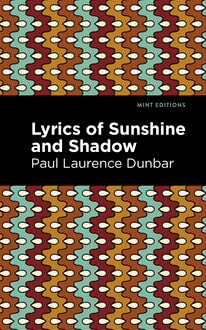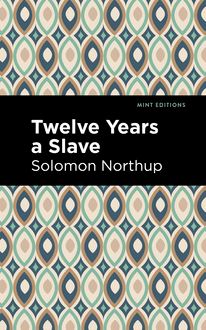-
 Univers
Univers
-
 Ebooks
Ebooks
-
 Livres audio
Livres audio
-
 Presse
Presse
-
 Podcasts
Podcasts
-
 BD
BD
-
 Documents
Documents
-
- Cours
- Révisions
- Ressources pédagogiques
- Sciences de l’éducation
- Manuels scolaires
- Langues
- Travaux de classe
- Annales de BEP
- Etudes supérieures
- Maternelle et primaire
- Fiches de lecture
- Orientation scolaire
- Méthodologie
- Corrigés de devoir
- Annales d’examens et concours
- Annales du bac
- Annales du brevet
- Rapports de stage
La lecture à portée de main
Vous pourrez modifier la taille du texte de cet ouvrage
Découvre YouScribe en t'inscrivant gratuitement
Je m'inscrisDécouvre YouScribe en t'inscrivant gratuitement
Je m'inscrisEn savoir plus
Vous pourrez modifier la taille du texte de cet ouvrage
En savoir plus

Description
A compilation of more than 30 addresses from Booker T. Washington explaining the importance of personal responsibility, self-reflection and economic independence in the Black community. Character Building is an inspiring series of anecdotes that speak to the issues of his contemporary audience.
Booker T. Washington was a strong supporter of education and entrepreneurship among African Americans. He believed a degree or certification could provide access and elevate one’s social and economic status. In Character Building, he provides his basic tenets of success that are rooted in individual behavior. He encourages productivity and the need for a positive home life. To succeed, each person’s environment must be conducive to their goals.
Washington’s life-long mission was to inspire and uplift the most vulnerable in his community. In Character Building he discusses the many tools that can be used to change a person’s station. It’s an open declaration of the core beliefs that helped shaped his life.
With an eye-catching new cover, and professionally typeset manuscript, this edition of Character Building is both modern and readable.
Sujets
Informations
| Publié par | Mint Editions |
| Date de parution | 26 janvier 2021 |
| Nombre de lectures | 0 |
| EAN13 | 9781513276137 |
| Langue | English |
| Poids de l'ouvrage | 2 Mo |
Informations légales : prix de location à la page 0,0450€. Cette information est donnée uniquement à titre indicatif conformément à la législation en vigueur.
Extrait
Character Building
Booker T. Washington
Character Building was first published in 1902.
This edition published by Mint Editions 2020.
ISBN 9781513271132 | E-ISBN 9781513276137
Published by Mint Editions®
minteditionbooks.com
Publishing Director: Jennifer Newens
Design & Production: Rachel Lopez Metzger
Project Manager: Micaela Clark
Typesetting: Westchester Publishing Services
C ONTENTS P REFACE T WO S IDES OF L IFE H ELPING O THERS S OME OF THE R OCKS A HEAD O N I NFLUENCING BY E XAMPLE T HE V IRTUE OF S IMPLICITY H AVE Y OU D ONE Y OUR B EST ? D ON ’ T BE D ISCOURAGED O N G ETTING A H OME C ALLING T HINGS BY T HEIR R IGHT N AMES E UROPEAN I MPRESSIONS T HE V ALUE OF S YSTEM IN H OME L IFE W HAT W ILL P AY ? E DUCATION THAT E DUCATES T HE I MPORTANCE OF B EING R ELIABLE T HE H IGHEST E DUCATION U NIMPROVED O PPORTUNITIES K EEPING Y OUR W ORD S OME L ESSONS OF THE H OUR T HE G OSPEL OF S ERVICE Y OUR P ART IN THE N EGRO C ONFERENCE W HAT IS TO BE O UR F UTURE ? S OME G REAT L ITTLE T HINGS T O W OULD - BE T EACHERS T HE C ULTIVATION OF S TABLE H ABITS W HAT YOU O UGHT TO DO I NDIVIDUAL R ESPONSIBILITY G ETTING ON IN THE W ORLD E ACH O NE H IS P ART W HAT W OULD F ATHER AND M OTHER S AY ? O BJECT L ESSONS S UBSTANCE VS . S HADOW C HARACTER AS S HOWN IN D RESS S ING THE O LD S ONGS G ETTING D OWN TO M OTHER E ARTH A P ENNY S AVED G ROWTH L AST W ORDS
P REFACE
A number of years ago, when the Tuskegee Normal and Industrial Institute was quite small, with only a few dozen students and two or three teachers, I began the practice of giving what were called Sunday Evening Talks to the students and teachers. These addresses were always delivered in a conversational tone and much in the same manner that I would speak to my own children around my fireside. As the institution gradually grew from year to year, friends suggested that these addresses ought to be preserved, and for that reason during the past few years they have been stenographically reported. For the purpose of this book they have been somewhat revised; and I am greatly indebted to my secretary, Mr. Emmett J. Scott, and to Mr. Max Bennett Thrasher, for assisting me in the revision and in putting them into proper shape for publication; and to Mr. T. Thomas Fortune for suggesting that these addresses be published in book form.
In these addresses I have attempted from week to week to speak straight to the hearts of our students and teachers and visitors concerning the problems and questions that confront them in their daily life here in the South. The most encouraging thing in connection with the making of these addresses has been the close attention which the students and teachers and visitors have always paid, and the hearty way in which they have spoken to me of the help that they have received from them.
During the past four years these addresses have been published in the school paper each week. This paper, The Tuskegee Student , has a wide circulation among our graduates and others in the South, so that in talking to our students on Sunday evening I have felt in a degree that I was speaking to a large proportion of the coloured people in the South. If there is anything in these addresses which will be of interest or service to a still wider audience, I shall feel I have been more than repaid for any effort that I have put forth in connection with them.
B OOKER T. W ASHINGTON
Tuskegee, Alabama
T WO S IDES OF L IFE
There are quite a number of divisions into which life can be divided, but for the purposes of this evening I am going to speak of two; the bright side of life and the dark side.
In thought, in talk, in action, I think you will find that you can separate life into these two divisions—the dark side and the bright side, the discouraging side and the encouraging side. You will find, too, that there are two classes of people, just as there are two divisions of the subject. There is one class that is schooling itself, and constantly training itself, to look upon the dark side of life; and there is another class, made up of people who are, consciously or unconsciously, constantly training themselves to look upon the bright side of life.
Now it is not wise to go too far in either direction. The person who schools himself to see the dark side of life is likely to make a mistake, and the person who schools himself to look only upon the bright side of life, forgetting all else, also is apt to make a mistake.
Notwithstanding this, I think I am right in saying that the persons who accomplish most in this world, those to whom on account of their helpfulness the world looks most for service—those who are most useful in every way—are those who are constantly seeing and appreciating the bright side as well as the dark side of life.
You will sometimes find two persons who get up in the morning, perhaps a morning that is overcast with shadows—a damp, wet, rainy, uninviting morning—and one of these persons will speak of the morning as being gloomy, will speak of the mud-puddles about the house, of the rain, and of all of the disagreeable features. The second person, the one who has schooled himself to see the brighter side of life, the beautiful things in life, will speak of the beauties that are in the rain drops, and the freshness of the newly bathed flowers, shrubs and trees. Notwithstanding the gloomy and generally disconsolate appearance of things, he will find something attractive in the scene out of doors, and will discover something in the gloomy morning that will cheer him.
Suppose that you see these same two persons eat their breakfast. Perhaps they will find out that the rolls are bad, but that the coffee is excellent. If the rolls are poor, it is a great deal better in such a case to get into the habit—a habit that you will find pays from every standpoint—of being able to forget how unpalatable they are, and to let your thoughts dwell upon the good and satisfactory coffee. Call the attention of your near neighbour at the table to the excellence of the coffee. What is the result of that kind of schooling? You will grow up to be an individual whom people will like to see coming near them—an individual to whom people will go for encouragement when the hours are dark, and when everything seems to be discouraging.
In just the same way, when you go into the class-rooms to recite your lessons, do not dwell upon any mistakes that you may think you see the teacher make, or upon any weakness in the presentation of the lesson. All teachers make mistakes sometimes, and you may depend upon it that it is an excellent teacher and a person of fine character who, when he or she has made a mistake, says frankly and plainly, “I have made a mistake,” or “I don’t know.” It takes a very good and a very bright teacher to say, “I don’t know.” No teacher knows everything about every subject. A good teacher will say frankly and clearly, “I don’t know. I cannot answer that question.”
Let me tell you, right here, too, that when you go out from here to become teachers yourselves—as a large proportion of you will go—whenever you get to a point where a student asks you a question which you are not able to answer, or asks you something about a subject on which you are not well informed, you will find it better to say frankly and honestly, “I am unable to answer your question.” Your students will respect you a great deal more for your frankness and honesty. Education is not what a person is able to hold in his head, so much as it is what a person is able to find. I believe it was Daniel Webster who said that the truly educated man was not the one who had all knowledge in his head, but the one who knew where to look for information upon any subject upon which at any time he might want information. Each individual who wishes to succeed must get that kind of discipline. He must get such training that he will know where to go and get facts, rather than try to train himself to hold all facts in his head.
I want you to go out from this institution so trained and so developed that you will be constantly looking for the bright, encouraging and beautiful things in life. It is the weak individual, as a rule, who is constantly calling attention to the other side—to the dark and discouraging things of life. When you go into your classrooms, I repeat, try to forget and overlook any weak points that you may think you see. Remember, and dwell upon, the consideration that has been given to the lesson, the faithfulness with which it was prepared, and the earnestness with which it is presented. Try to recall and to remember every good thing and every encouraging thing which has come under your observation, whether it has been in the class-room, or in the shop, or in the field. No matter where you are, seize hold on the encouraging things with which you come in contact.
In connection with the personality of their teachers, it is very unfortunate for students to form a habit of continually finding fault, of criticising, of seeing nothing but what the student may think are weak points. Try to get into a frame of mind where you will be constantly seeing and calling attention to the strong and beautiful things which you observe in the life and work of your teachers. Grow into the habit of talking about the bright side of life. When you meet a fellow student, a teacher, or anybody, or when you write letters home, get into the habit of calling attention to the bright things of life that you have seen, the things that are beautiful, the things that are charming. Just in proportion as you do this, you will find that you will not only influence yourself in the right direction, but that you will also influence others that way. It is a very bad habit to get into, that of being continually moody and discouraged, and of making the atmosphere uncomfortable for everybody who comes within ten feet of you. There are some people who are so constantly looking on the dark si
-
 Univers
Univers
-
 Ebooks
Ebooks
-
 Livres audio
Livres audio
-
 Presse
Presse
-
 Podcasts
Podcasts
-
 BD
BD
-
 Documents
Documents
-
Jeunesse
-
Littérature
-
Ressources professionnelles
-
Santé et bien-être
-
Savoirs
-
Education
-
Loisirs et hobbies
-
Art, musique et cinéma
-
Actualité et débat de société
-
Jeunesse
-
Littérature
-
Ressources professionnelles
-
Santé et bien-être
-
Savoirs
-
Education
-
Loisirs et hobbies
-
Art, musique et cinéma
-
Actualité et débat de société
-
Actualités
-
Lifestyle
-
Presse jeunesse
-
Presse professionnelle
-
Pratique
-
Presse sportive
-
Presse internationale
-
Culture & Médias
-
Action et Aventures
-
Science-fiction et Fantasy
-
Société
-
Jeunesse
-
Littérature
-
Ressources professionnelles
-
Santé et bien-être
-
Savoirs
-
Education
-
Loisirs et hobbies
-
Art, musique et cinéma
-
Actualité et débat de société
- Cours
- Révisions
- Ressources pédagogiques
- Sciences de l’éducation
- Manuels scolaires
- Langues
- Travaux de classe
- Annales de BEP
- Etudes supérieures
- Maternelle et primaire
- Fiches de lecture
- Orientation scolaire
- Méthodologie
- Corrigés de devoir
- Annales d’examens et concours
- Annales du bac
- Annales du brevet
- Rapports de stage




















